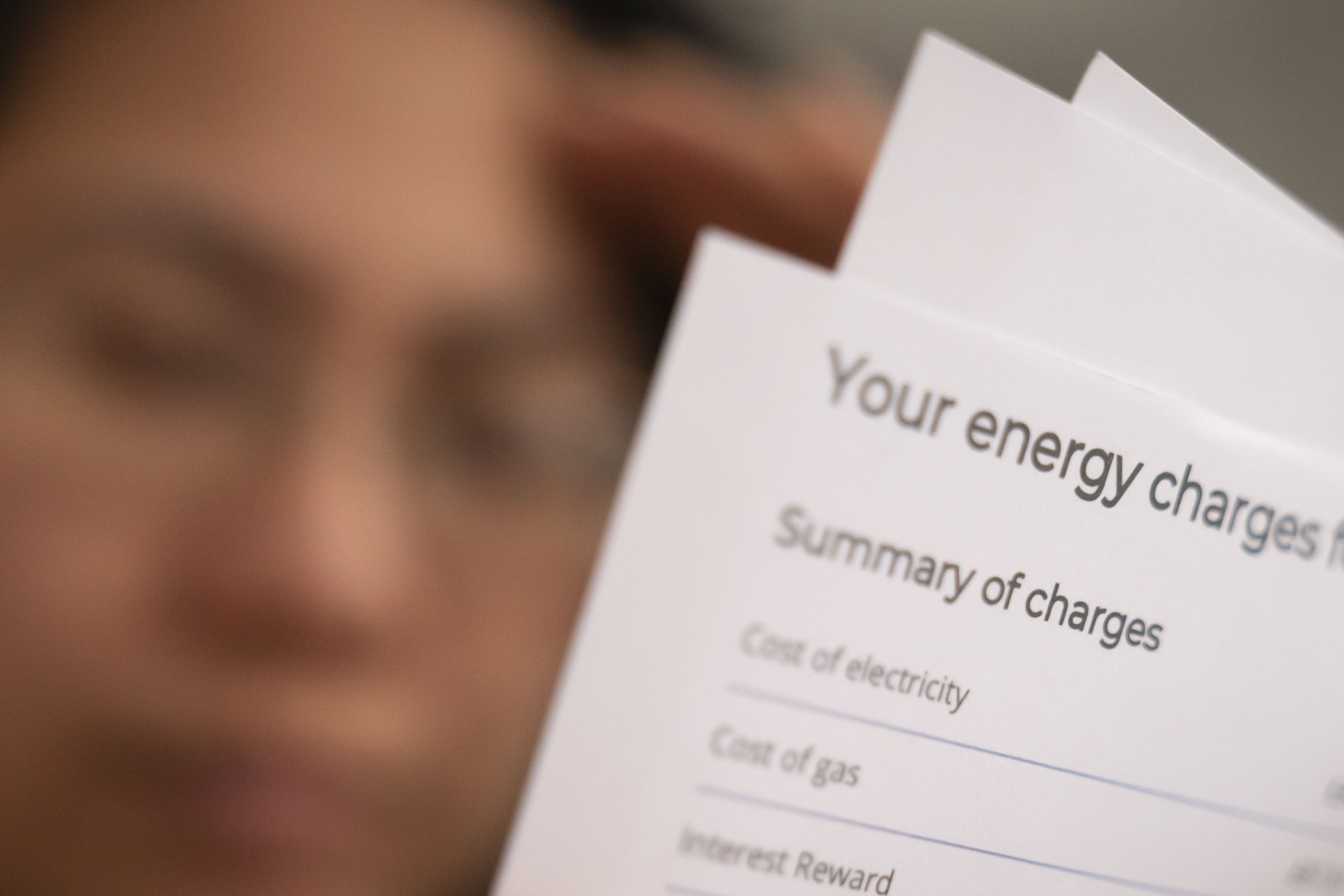What does Ofgem’s price cap mean for my energy bills?
Lower wholesale prices have led to Ofgem dropping its price cap from April, which will bring some relief to households.

Your support helps us to tell the story
From reproductive rights to climate change to Big Tech, The Independent is on the ground when the story is developing. Whether it's investigating the financials of Elon Musk's pro-Trump PAC or producing our latest documentary, 'The A Word', which shines a light on the American women fighting for reproductive rights, we know how important it is to parse out the facts from the messaging.
At such a critical moment in US history, we need reporters on the ground. Your donation allows us to keep sending journalists to speak to both sides of the story.
The Independent is trusted by Americans across the entire political spectrum. And unlike many other quality news outlets, we choose not to lock Americans out of our reporting and analysis with paywalls. We believe quality journalism should be available to everyone, paid for by those who can afford it.
Your support makes all the difference.The typical household energy bill will fall to its lowest level for two years from April but will still remain well above pre-pandemic levels.
What can households expect over the coming months, and are years of exorbitant energy bills finally coming to an end?
– What is Ofgem’s price cap?
The energy price cap was introduced by the Government in January 2019 and sets a maximum price that energy suppliers can charge consumers in England, Scotland and Wales for each kilowatt hour (kWh) of energy they use.
It aims to ensure that prices for customers on default energy tariffs are a fair reflection of the cost paid by suppliers for wholesale energy, and that the profit firms make is capped.
Ofgem sets its cap every three months as the average amount paid by the typical household.
It is important to note though that Ofgem’s cap does not set a maximum amount for the actual bill households receive – those who use more than the average amount will pay more, and those who use less will pay less.
Energy is regulated separately in Northern Ireland, where prices are also falling.
– Why is Ofgem’s price cap falling?
The fall reflects drops in wholesale energy prices – the amount energy firms pay for gas and electricity before supplying it to households.
The latest cap will see prices fall to their lowest level since Russia’s invasion of Ukraine in February 2022, which caused a further spike in an already turbulent wholesale energy market, driving up costs for suppliers and ultimately customers.
Market volatility led to the cap reaching a staggering £4,279 in January last year, although customers were partly shielded from this by the Government’s Energy Price Guarantee, which limited the average bill to £2,500.
Analysts Cornwall Insight said the lower cap suggested that the UK has, for now, weathered the storm of Red Sea tensions, securing a steady supply of LNG (liquefied natural gas) through the Atlantic.
Good availability of supply in Europe and Asia, in part due to mild weather, has also contributed to the drop in prices.
– What is this year looking like in terms of energy bills?
If the forecasts are accurate, the cap will fall again in July, with a small rise in October.
However, the latest projections indicate that the cap will stay below the current level of £1,928 until the end of the year.
– So are sky-high energy bills finally coming to an end?
Unfortunately, Cornwall Insight – whose forecasts have consistently been near identical to Ofgem’s actual price rises and falls – says it does not expect energy prices to return to pre-Covid levels before the end of the decade at the earliest.
And it warned that prices remain subject to wholesale market volatility, with the UK’s reliance on energy imports meaning that geopolitical incidents could continue to have a significant impact.
What if I’m on a prepayment meter?
Households on prepayment meters will pay the same as those on direct debitafter Ofgem decided to start balancing standing charges between prepayment and direct debit customers from April.
This will stop prepayment customers having to pay more than others for their energy.
Ofgem says this change means prepayment customers who get their electricity and gas from the same supplier will save around £52 a year because of this change, while people who pay by direct debit will pay an extra £10 per year to account for it.
– Will the falling price cap mean the return of switching?
Some fixed deals are currently available for close to the April price cap but consumer groups have warned most of these deals will save consumers very little.
Which? has advised that with the price cap predicted to remain fairly stable for the rest of 2024, more competitive deals may become available in the coming months.
The watchdog said: “As a rule of thumb, we wouldn’t recommend fixing a contract longer than 12 months, higher than the April price cap or with significant exit fees in case circumstances change and you want to switch to a better deal.”